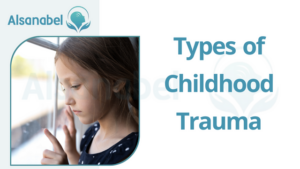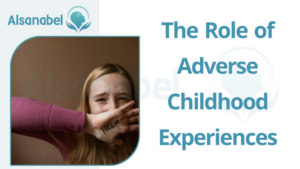Childhood Trauma and PTSD in Adulthood 2024
- Category Childhood Trauma
Childhood trauma can have a lasting impact on an individual’s mental and emotional well-being. It is important to understand the connection between childhood trauma and post-traumatic stress disorder (PTSD) in adulthood. This article will provide an overview of childhood trauma and its impact on adulthood, as well as explore the link between childhood trauma and PTSD.
Individuals who have experienced childhood trauma may be more prone to developing mental health issues, including anxiety, depression, and substance abuse. They may also have difficulty forming and maintaining healthy relationships, struggle with low self-esteem, and experience difficulties in various domains of life, such as work or education.
Table of Contents
ToggleLink between Childhood Trauma and PTSD
Post-traumatic stress disorder (PTSD) is a specific type of mental health disorder that can develop after experiencing or witnessing a traumatic event. For individuals who have experienced childhood trauma, the risk of developing PTSD in adulthood is significantly heightened.
The link between childhood trauma and PTSD lies in the long-lasting impact that traumatic experiences have on the brain and its ability to process and regulate emotions. The intense distress and fear experienced during childhood trauma can result in lasting changes in the brain’s stress response system. This hypersensitivity to stress can make individuals more vulnerable to developing PTSD when faced with traumatic events later in life.
It is important to recognize the connection between childhood trauma and PTSD in order to provide appropriate support and treatment for individuals who have experienced trauma in their early years. By understanding this link, Psychologist in Qatar can offer targeted interventions to help individuals heal and recover from their traumatic past. This can include therapy, support groups, and other evidence-based treatments that can help individuals overcome the lasting effects of childhood trauma and minimize the risk of developing PTSD in adulthood.
Types of Childhood Trauma

Physical abuse and its long-term effects
Physical abuse is a form of childhood trauma characterized by the intentional infliction of physical harm on a child. This can include hitting, kicking, burning, or any other act that causes physical pain or injury. The long-term effects of physical abuse can be devastating for the victim. They may experience physical health issues, such as chronic pain or impaired motor skills.
Additionally, they may develop mental health disorders, such as anxiety, depression, or post-traumatic stress disorder (PTSD). The trauma experienced in childhood can affect their ability to form healthy relationships and can impact their overall quality of life.
Psychological abuse and its lasting impact
Psychological abuse involves the use of words, actions, or neglect to belittle, demean, or intimidate a child. This can include constant criticism, humiliation, manipulation, or the withholding of love and affection. The lasting impact of psychological abuse can be profound.
Children who experience psychological abuse may develop low self-esteem, feelings of worthlessness, and a distorted sense of self. They may struggle with trust and have difficulties forming healthy relationships.
Additionally, they may be more prone to developing mental health disorders, such as anxiety, depression, or personality disorders. The emotional scars of psychological abuse can follow individuals into adulthood, impacting their emotional well-being and overall functioning.
By understanding the long-term effects of physical and psychological abuse, Psychiatrist in Qatar can offer targeted treatments and therapies to help individuals heal and recover from their traumatic past. This support can contribute to minimizing the risk of developing PTSD and other mental health disorders in adulthood.
Neglect and Trauma
Effects of neglect on psychological well-being
Neglect is a form of childhood trauma that occurs when a child’s basic needs for care, love, and attention are not met. This type of trauma can have severe consequences on a child’s psychological well-being. The lack of emotional support and nurturing can lead to feelings of abandonment, worthlessness, and loneliness.
Children who experience neglect often struggle with forming healthy attachments and trusting others. They may also develop low self-esteem and have difficulties regulating their emotions.The impact of neglect on a child’s psychological well-being can be long-lasting. It can shape their belief system, affecting how they view themselves, others, and the world around them.
The absence of consistent care and positive relationships can lead to a distorted sense of self and difficulty in forming healthy connections later in life. These emotional wounds can linger into adulthood, impacting their sense of self-worth and overall level of happiness and fulfillment.
Long-term consequences of childhood neglect
Childhood neglect has significant long-term consequences for individuals who have experienced it. One of the most prevalent effects is the increased risk of developing post-traumatic stress disorder (PTSD) in adulthood.
PTSD is a mental health disorder that can result from experiencing or witnessing a traumatic event. The chronic neglect endured during childhood can be traumatic and contribute to the development of PTSD later in life.
In addition to PTSD, individuals who have experienced childhood neglect may also be at a higher risk for various mental health disorders, such as depression, anxiety, and borderline personality disorder. These individuals may struggle with regulating their emotions and have difficulty forming and maintaining healthy relationships.
Addressing childhood neglect is crucial to prevent the long-term impact it can have on individuals’ well-being. Early intervention and support can help individuals heal from their childhood trauma.
Psychiatrists in Qatar can provide therapies such as trauma-focused cognitive-behavioral therapy (TF-CBT) or eye movement desensitization and reprocessing (EMDR) to help individuals process and overcome the negative effects of childhood neglect. By addressing and healing from these traumatic experiences, individuals can improve their overall psychological well-being and lead healthier, more fulfilling lives.
Sexual Abuse and PTSD
The relationship between sexual abuse and PTSD
Sexual abuse is a traumatic experience that can have profound and lasting effects on individuals, particularly when it occurs during childhood. One of the most common outcomes of sexual abuse is the development of post-traumatic stress disorder (PTSD) in adulthood. PTSD is a mental health disorder that can arise after experiencing or witnessing a traumatic event.
The experience of sexual abuse can profoundly impact a survivor’s psychological well-being. The trauma associated with sexual abuse can significantly disrupt the individual’s sense of safety, trust, and self-worth. Survivors of sexual abuse may experience intrusive thoughts and memories of the abuse, have difficulty sleeping, suffer from intense fear and anxiety, and exhibit avoidance behaviors related to the trauma.
The symptoms of PTSD can be wide-ranging and debilitating, affecting all aspects of a survivor’s life. Emotional distress, hypervigilance, and a heightened state of arousal are common among individuals with PTSD. These individuals may also struggle with regulating their emotions, experience mood swings, and have difficulty forming and maintaining healthy relationships.
Coping mechanisms for survivors of childhood sexual abuse
Coping with the long-term effects of childhood sexual abuse and PTSD can be challenging, but there are strategies and coping mechanisms that survivors can employ to aid in their healing process. Seeking Psychiatry hospital Qatar help is crucial in addressing and overcoming the trauma associated with sexual abuse.
Therapeutic approaches such as trauma-focused therapy, cognitive-behavioral therapy (CBT), and eye movement desensitization and reprocessing (EMDR) have shown promise in helping survivors of sexual abuse manage their symptoms of PTSD. These therapies provide a safe space for survivors to process their trauma, challenge negative thought patterns, and develop healthy coping strategies.
In addition to therapy, survivors can find support through support groups and connecting with others who have shared similar experiences. Sharing their stories and feelings with others who understand can provide a sense of validation, support, and encouragement.
Self-care practices are also essential for survivors of childhood sexual abuse. Engaging in activities that promote relaxation, mindfulness, and self-compassion can help survivors manage their emotions and reduce anxiety. This can include activities such as exercise, meditation, journaling, and engaging in hobbies that bring joy and fulfillment.
Ultimately, the journey of healing from childhood sexual abuse and PTSD is unique for each survivor. With the right support and resources, survivors can develop effective coping mechanisms, regain control over their lives, and work towards building a future free from the shackles of their past trauma.
The Role of Adverse Childhood Experiences

Introduction to Adverse Childhood Experiences (ACEs)
Adverse Childhood Experiences (ACEs) are defined as stressful or traumatic experiences that occur during childhood. These experiences can include various forms of abuse, neglect, household dysfunction, or witnessing violence. Research has shown that ACEs can have a significant impact on an individual’s mental and physical health throughout their life.
Exploration of the ACEs study and its findings
The ACEs study, conducted by the Centers for Disease Control and Prevention (CDC) and Kaiser Permanente, aimed to understand the link between childhood trauma and later-life health outcomes. The study surveyed over 17,000 participants, asking them about their exposure to ACEs and their current health status.
The findings revealed a strong association between ACEs and a wide range of negative health outcomes. Individuals who experienced ACEs had an increased risk of developing chronic diseases such as heart disease, diabetes, and cancer. They were also more likely to engage in risky behaviors such as smoking, substance abuse, and unsafe sexual practices.
Moreover, the study found a higher prevalence of mental health disorders among those with a history of ACEs. This included an increased risk of developing post-traumatic stress disorder (PTSD), depression, anxiety, and other psychological disorders.
The impact of ACEs on the brain and nervous system was also explored. Chronic stress experienced during childhood can disrupt the normal development of the brain, leading to long-term alterations in brain structure and function. These changes can further contribute to the development of mental health disorders and increase the risk of experiencing future trauma.
Understanding the lasting effects of ACEs is crucial in developing targeted interventions and support systems for individuals who have experienced childhood trauma. By implementing trauma-informed approaches in healthcare, education, and social services, we can improve outcomes for survivors and minimize the long-term impact of ACEs.
Developmental Impact of Childhood Trauma
Effects of childhood trauma on brain development
Childhood trauma, such as adverse childhood experiences (ACEs), can have a profound impact on the developing brain. Research has shown that exposure to chronic stress and trauma during childhood can disrupt the normal development of the brain, particularly in areas related to emotional regulation, memory processing, and stress response.
The brain is highly malleable during early childhood, and experiences shape its structure and function. The prolonged activation of the stress response system in response to trauma can lead to changes in the brain’s neural pathways and circuits. These changes can impair cognitive abilities, emotional regulation, and the ability to form healthy relationships.
Psychological consequences of early trauma
Childhood trauma can also have long-lasting psychological consequences, including an increased risk of developing post-traumatic stress disorder (PTSD) in adulthood. PTSD is a severe mental health condition that can occur after experiencing or witnessing a traumatic event. Symptoms of PTSD may include intrusive thoughts, nightmares, flashbacks, hypervigilance, and avoidance of trauma-related triggers.
Moreover, individuals who have experienced childhood trauma are at a higher risk of developing other mental health disorders, such as depression, anxiety, and substance abuse. The effects of trauma can disrupt normal brain function, leading to difficulties in regulating emotions, coping with stress, and forming secure attachments.
It is essential to recognize the connection between childhood trauma and its long-term impact on mental health. Early identification and intervention can help mitigate the negative effects of trauma and provide individuals with the support they need to heal and build resilience.
Complex Trauma and PTSD
Understanding complex trauma and its association with PTSD
Complex trauma refers to exposure to multiple traumatic events or prolonged trauma during childhood, often involving interpersonal violence, neglect, or abuse. This type of trauma can have a profound and lasting impact on an individual’s development and well-being. One of the most common consequences of complex trauma is the development of post-traumatic stress disorder (PTSD) in adulthood.
PTSD is a mental health condition that can occur following a traumatic event. It is characterized by intrusive thoughts, nightmares, flashbacks, hypervigilance, and avoidance of trauma-related triggers. Individuals who have experienced complex trauma during their childhood are at a higher risk of developing PTSD later in life due to the chronic and severe nature of their traumatic experiences.
The connection between complex trauma and PTSD lies in how the brain processes and responds to stress. Childhood trauma can disrupt the normal development of brain regions involved in emotional regulation, memory processing, and stress response. The brain’s neural pathways and circuits are altered, leading to difficulties in processing and coping with stress. This dysregulation can contribute to the development of PTSD symptoms, as well as other mental health disorders.
Treatment options for individuals with complex trauma
Treating complex trauma and its associated PTSD requires a comprehensive and trauma-informed approach. Therapy modalities such as trauma-focused cognitive-behavioral therapy (TF-CBT), eye movement desensitization and reprocessing (EMDR), and dialectical behavior therapy (DBT) have proven effective in addressing the effects of trauma.
TF-CBT focuses on helping individuals process traumatic memories, develop coping skills, and build resiliency. EMDR utilizes eye movements or other bilateral stimulation to facilitate the reprocessing of traumatic memories. DBT combines individual therapy, group therapy, and skill-building to address emotional dysregulation and interpersonal difficulties.
In addition to therapy, creating a safe and supportive environment is crucial for individuals with complex trauma. This includes providing opportunities for self-care, fostering healthy relationships, and promoting a sense of belonging and empowerment.
By acknowledging the link between childhood trauma and the development of PTSD in adulthood, individuals can seek appropriate support and treatment. With the right interventions and support system in place, individuals can heal from their trauma, mitigate the symptoms of PTSD, and regain control over their lives.
Healing and Recovery

Strategies for Healing from Childhood Trauma and Managing PTSD
Recovering from childhood trauma and managing post-traumatic stress disorder (PTSD) can be a challenging journey. However, there are strategies that can aid in healing and recovery.
- Seek Professional Help: It is essential to consult a mental health professional who specializes in trauma and PTSD. They can offer guidance, support, and evidence-based therapies to help individuals navigate their healing process.
- Develop Coping Skills: Learning healthy coping mechanisms can be instrumental in managing PTSD symptoms and healing from trauma. These may include relaxation techniques, grounding exercises, deep breathing exercises, or mindfulness practices.
- Establish a Support Network: Building a strong support system is crucial for healing and recovery. This can include trusted friends, family members, or support groups where individuals can share their experiences, receive validation, and connect with others who have gone through similar situations.
- Practice Self-Care: Engaging in activities that promote self-care and overall well-being can aid in the healing process. This can include engaging in hobbies, practicing self-compassion, and prioritizing physical and emotional health.
- Set Boundaries and Prioritize Safety: Setting boundaries with individuals or situations that trigger trauma can be vital in managing PTSD. Prioritizing personal safety and avoiding potentially harmful environments is crucial for healing and recovery.
The Importance of Therapy and Support Networks
Therapy and support networks play a significant role in the healing journey of individuals with childhood trauma and PTSD. Psychiatrists in Qatar who specialize in trauma-focused approaches, such as cognitive-behavioral therapy (CBT) or eye movement desensitization and reprocessing (EMDR), can provide a safe and supportive space for individuals to process their trauma and develop coping skills.
Support networks, whether in the form of support groups or close relationships, can provide the validation, understanding, and encouragement needed throughout the healing process. Being surrounded by individuals who have experienced similar situations can help individuals feel less alone, enhance their sense of belonging, and provide emotional support.
Healing from childhood trauma and managing PTSD is a complex and individualized process. It requires patience, resilience, and a commitment to self-care. With the right strategies, professional Psychiatrist in Qatar guidance, and support networks, individuals can find the healing and recovery they deserve.
In conclusion, childhood trauma can have a profound impact on individuals, increasing their vulnerability to developing PTSD in adulthood. By raising awareness, implementing early intervention strategies, and providing support networks, society can better address the effects of childhood trauma and promote healing and recovery.









